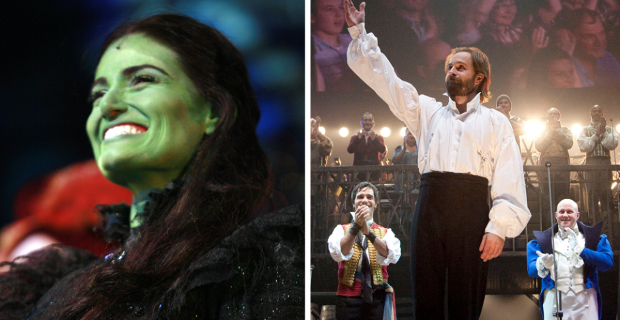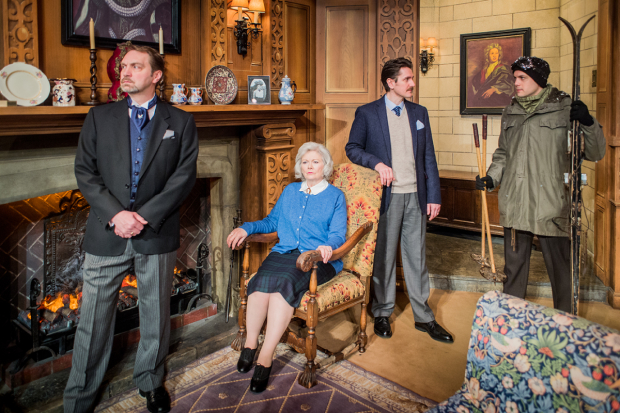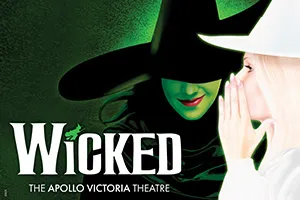12 smash-hit shows that were critical duds when they first opened
Some show are so good even bad reviews can’t keep them down! We round up ten times the critics got it wrong…

(© Dan Wooller)
As much as every production craves those big rosy five-star reviews, not all shows need them to be catapulted into theatre legend. Some of the biggest musicals and plays in history fell foul of critics, yet through sheer force of will, fan power or huge cultural impact, have become cult classics. We pick out our top ten shows that defied the reviewers.
Amélie
The Broadway production of Amélie got relatively tepid reviews – closing after 27 previews and 56 performances. But the show's gradual transformation into glowing low-key musical has been a feat of theatrical endeavour – over the last 12 months it has had a triumphant five-star UK premiere ahead of a stellar run at The Other Palace. A further transfer may well have been on the cards had the pandemic not halted its progress. We are keeping fingers crossed that it could come back!
Merrily We Roll Along
Famous for causing a lengthy schism between composer Stephen Sondheim and director Harold Prince, the play premiered on Broadway where it managed a mere 44 previews and 16 performances. While Sondheim's tunes were widely applauded, many said that the book was hard to decipher – biographer Meryle Secret said Prince had to add character names to sweatshirts just to add clarity. Since then the show has been tinkered and toyed with by Sondheim and Firth, with a spree of revivals winning the piece a variety of awards, including three Oliviers.

© All images are copyright Dan Wooller, 2012
Wicked
Considering it has become a firm West End staple and a hugely followed classic, Wicked had something of a rocky road before it reached musical superstardom. "The show's twenty-two songs were written by Stephen Schwartz, and not one of them is memorable," wrote The New Yorker when the piece first opened on Broadway, while The New York Times said "Wicked does not, alas, speak hopefully for the future of the Broadway musical." But the show has defied its critics as much as it defies gravity – over 15 years on Broadway and more than a decade in the West End and it is still drawing massive crowds – with some show-stopping numbers sung the world over. So much for not memorable…
Les Misérables
Les Misérables didn't fare too well when it first opened at the Barbican. If you'd told Michael Ratcliffe of the Observer back in 1985 that Les Mis was set to become the longest-running West End musical in history, he wouldn't have believed you – describing the show as "witless and synthetic entertainment" when it first premiered at the Barbican. But the company took the mantra "One Day More" to heart and, after gathering huge box office figures, the show continued from strength to strength and transferred from the Barbican into the West End, where it remains to this day.
The Birthday Party
The saga of Pinter's most famous play and its critical reception has become a well-documented one. Despite being warmly received at the Arts Theatre in Cambridge (as well as during visits to Oxford and Wolverhampton), the show was critically reviled when it opened in London, lasting no more than eight performances. Only a belated write-up from Harold Hobson in The Sunday Times saved it from being consigned to the dustbin of theatre history.

© Dan Wooller for WhatsOnStage
We Will Rock You
The tenth longest-running West End musical in history was near-universally panned when it first opened – described by The Guardian as "ruthlessly manufactured" and the Daily Telegragh as "prolefeed at its worst". The Mirror went with "Ben Elton should be shot for this risible story". It now holds another accolade – the longest-running musical at the Dominion Theatre, lasting a solid 12 years.
Chess
Chess has always had a bit of a turbulent relationship with critics, and while many are huge fans of the score, the book has often been divisive. The West End premiere of the show was met by some intense reviews, none least from The Guardian: "A musical is only as good as its book, and here one is confronted by an inchoate mess." Other rave write-ups saved the day, however, and the piece moved over to Broadway, where the reviewers met it with knives unsheathed: "the evening has the theatrical consistency of quicksand" said Frank Rich of The New York Times.
Look Back in Anger
John Osborne's play is seen by many as a turning point for 20th-century British theatre, ushering in a new generation of outspoken, politically critical playwrights. But when the piece first opened at the Royal Court in 1956 it was a very different story – Milton Shulman called the play "self-pitying snivel" and many believed the English Stage Company would be bound for liquidation. History, as we've seen, told a very different story.
Starlight Express
Critics didn't mince words when Starlight Express first premiered on Broadway, Frank Rich of The New York Times saying the show was: "A confusing jamboree of piercing noise, routine roller-skating, misogyny and Orwellian special effects…the experience is about as involving as standing on the sidelines while other people take one of the lesser rides at Disneyland." Brutal.

© Robert Workman
The Crucible
While certainly not the favourite of anyone studying English Language GCSE, it turns out The Crucible wasn't a big hit with the critics either – when the piece first premiered in 1953 they were largely hostile (even Miller himself thought the production was too stylised and cold) with Jack Gaver from Dallas Morning News saying it was "interesting at times, but nevertheless a bore". After a rejigging and some directorial changes, the piece still went on to bag the Tony Award for Best New Play.
Blasted
Sarah Kane never had a favourable relationship with critics, and her debut play Blasted certainly got the ball rolling – labelled as a "disgusting feast of filth" by the Daily Mail, while Nick Curtis in the Evening Standard described the final scenes as "a systematic trawl through the deepest pits of human degradation". Michael Billington, who at first savaged the play, later admitted he got his verdict wrong, admitting Kane was a "poet". As this article has certainly proven, even critics make mistakes!
The Mousetrap
Though the critics were generally positive about The Mousetrap when it first opened (having since gone on to become the longest-running show in theatre history), funnily enough, one distinguished observer happened to be less than optimistic about the show back in the 1950s. Agatha Christie, in a letter to good friend Peter Saunders, said of her play: "It won't run that long. Eight months perhaps. Yes, I think eight months." Almost 70 years later, we think Christie may have been a bit off the mark.




















